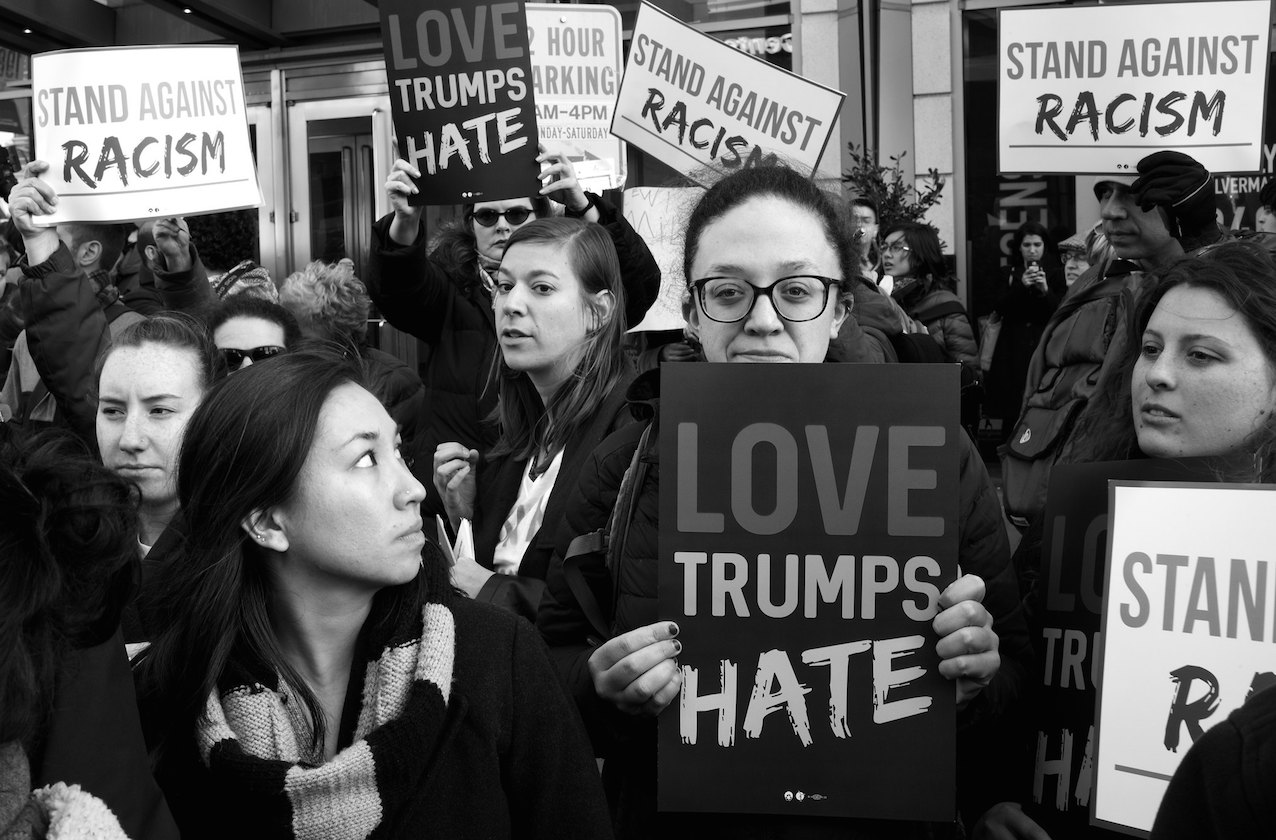Anti-Semitism doesn’t go away but it waxes, wanes, and transforms. That’s its power. Its roots are in ancient religious myths (Christ-killers!) but its modern forms, secular and politically motivated, lie in the 19th century. It’s a version of racism but with particular features, always capable of surprises.
So, for instance, the Israeli press has its own take on the U.S. impeachment hearings. Haaretz warns that Trump followers have “heard enough anti-Semitic dog whistles from Trump and his circle to understand that if things go south … it can only be because of people whose names are Schiff, Goldman, Soros and the like …”
It recalls Trump’s campaign ad in 2016 attacking the “global power establishment,” which was personified by three Jewish financial figures.
The Times of Israel added other potential Jewish targets, like Ukraine President Zelensky and two buffoon associates of Rudy Giuliani, Fruman and Parnas, who ostensibly pushed Zelensky to accede to Trump’s demands for dirt.
This isn’t simply based on a reflexive, perennial fear of anti-Semitism. It’s about a resurgence in recent years. There’ve been violent, overt cases, like the Paris kosher supermarket attack or, most shocking perhaps, the Pittsburgh synagogue massacre. But these are still in the general class of gutter anti-Semitism, like cemetery defacings. Something else developed more recently.
After the Second World War and revelations about the Holocaust, a revulsion over anti-Semitism set in, even among the upper classes and political elites, who’d had their own versions of it. Anti-Semitism became unfashionable up there, even as it continued among the neo-Nazis and mouth-breathers. It went into bad odour — though previously it had often been endorsed — at public, official levels.
This opened space for Jews to participate in areas of the economy and politics that had been closed off. It meant you could breathe easier, but there was also less reason to identify with the most beleaguered, racialized groups.
I’d say this is now shifting. Along with a new tolerance for racism in high places, anti-Semitism is receiving a quasi-official rehab. Some, like neo-fascist Marine Le Pen in France, are still wary of it, unlike her father, who isn’t. That’s the basis for their political rift. A clearer example is Hungary’s prime minister, Viktor Orban, who wins anti-Semitic support by vilifying George Soros, while seeking cover by aligning with Israel. He’s testing the waters.
Trump’s dog whistles fit here. Note that the neo-Nazis who marched in Charlottesville, Va., and who included, said Trump, “very fine people,” chanted, Jews Will Not Replace Us. Not: Blacks Will Not Replace Us — though their “great replacement” theory covers all groups that might dispossess the “white race.” It’s this incipient return to official respectability for anti-Semitism that’s new.
For a sense of the surprising turns anti-Semitism can take, consider Trump’s chief policy guy and architect of his racist, anti-Muslim ban: Stephen Miller, a Jew. Miller isn’t overtly anti-Semitic but the implications are often ominous. Among a cache of his emails revealed last week, one says: “this is a good chance to expose that ridiculous Statue of Liberty myth. Poem has nothing to do with it: Indeed, two decades after poem was added, Coolidge shut down immigration. No one said he was violating the Statue of Liberty’s purpose.” Emma Lazarus, that poet, was, Jewish, as were waves of immigrants.
This leads to the surprising question: can a Jew be anti-Semitic? This — surprise again — has been intensely debated for over a century. There’s even a sub-debate on the difference between anti-Semitic Jews and Jewish self-haters.
Unsurprisingly, accusations flow in all directions. My late, beloved teacher, Emil Fackenheim, might’ve said: it’s like feeding a sick horse with a pill through a blowpipe: everything depends on who blows first. In fact, Emil and I were in an analogous conflict over Israel’s policies, when he died. We never resolved it.
I confess I’m tempted to go all in on the liberal, or social justice side of these debates and express my disappointment that Jews, who’ve experienced prejudicial treatment, should mete it out. But really, that’s another kind of stereotyping. Of course Jews can be conservative, right wing, even racist. It doesn’t have to do with being Jewish, it has to do with being human.
Rick Salutin writes about current affairs and politics. This column was first published in the Toronto Star.
Image: Stephen Melkisethian/Flickr




